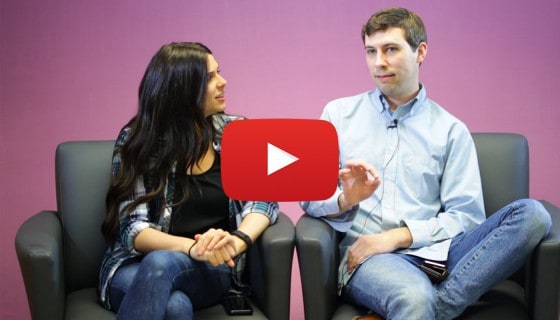Office Etiquette: Dos and Don’ts of Work Emails

Etiquette, etiquette, etiquette. Without email etiquette guidelines, we would all dissolve into anarchy, because these rules ensure that everyone gets treated professionally. Up your email game by perusing these do’s and don’ts and incorporating them into your workplace correspondences, and you’ll always be taken seriously.
Email Etiquette DO: Customize.
At least say “Hello” before jumping straight into the body of your message. It’s common courtesy. Just think of it like a conversation. It would be weird and kind of rude if you just walked up to someone and dove right into your proposed budget cuts, wouldn’t it? The only exception is if you and one or two other people are sending short emails in quick succession to one another.
Email Etiquette DON’T: Use “Reply All.”
Reply All and group messages are the bane of my existence. If you have something to say to ONE person in the group, just say it to that ONE person instead of clogging up everyone else’s inboxes with your personal chat about where you bought the new suede skirt that you’re wearing.
Email Etiquette DO: State your emotions.
It is so incredibly easy to misinterpret someone’s emotions over email. For example, “Hey Jean, I need you to come to my office when you get a chance,” could be taken SO many ways. If you’ve ever received an ambiguous email like this, you know the panic of “Did I do something wrong?” or “Am I going to get written up?”
Save others that anguish by saying something like, “Hey Jean, I am very happy with your annual report. Could you come to my office so we can discuss some of the details?” instead.
Email Etiquette DON’T: Send one-word responses.
Remember all the rage you felt when you typed out a super long, heartfelt message to one of your friends in high school, and all they responded with was, “k”? The memory still makes my blood boil. The email equivalent of that is, “Okay,” “Sure,” “Thanks,” or any other lazy, one-word response. It’s not that hard to type out a short sentence, so just do it to prevent any of your co-workers from hating you.
Email Etiquette DO: Have an objective in mind.
And state it in your subject line. You want your recipient to know what you’re going to be talking about before they even open your email so they can be prepared. Once you start writing the email, stick to that objective and try not to get off-topic. You want to make your emails as effective as possible without wasting anyone’s time by including a random tangent about how this morning’s coffee tasted burnt.
Email Etiquette DON’T: Discuss private matters.
If you want to tell your co-worker about the new gluten-free dog food that gave your dog the runs, by all means, tell them. In person. Or by text message. But not through email. If you’re using your official account, your company can pull those emails anytime they want, so do you really want your superiors knowing the intimate details of your dog’s digestive system? Didn’t think so.
Email Etiquette DO: Proofread.
Once you hit the send button, there’s no going back (unless you have Gmail, then you have one minute to undo the deed). So, after you finish typing everything out, look over it at least once, maybe even twice, to make sure that you didn’t misspell a word or have a random typo in there somewhere. For an extra pair of “eyes” on your email, our Earn Spend Live editors recommend Grammarly, an automated proofreading app.
This is important even when you’re emailing your co-workers with whom you have a personal relationship because you never know if that email needs to be forwarded to others.
Email Etiquette DON’T: Send anything while drunk.
Drunk texting your BFF? Encouraged. Drunk texting your ex? Not encouraged, but you do you. Drunk emailing your boss? You better hope they have a sense of humor and that you still have a job on Monday. If you have a problem controlling what you say when you’ve had one too many on a Friday night, have a friend take your phone away so you don’t accidentally send a drunk selfie to everyone in the accounting department.
Email Etiquette DO: Be polite.
Teasing your co-workers is acceptable on instant messaging or through texting, but in emails, not so much (see above). Emails can always be forwarded to other people, so you should address the person in the cubicle next to you the same way you would address the CEO of your company. Just be nice and remember that anything you say through professional channels has the potential to bite you in the ass if you’re not careful.
Email Etiquette DON’T: Use emojis.
Emailing is not texting, and you are not in middle school. Save your cutesy smiley faces for when you’re texting your SO and stay professional in all of your emails. Emojis come off as juvenile and unprofessional in emails, so even if you think that a tongue-y face could add so much to what you’re trying to say, stop yourself. (Pretend there’s a stop sign emoji here…if that even exists.)
Email Etiquette DO: Be timely.
Don’t be known as “that girl” in your office who takes a millennia to respond to even the simplest of emails. People will start forgetting about you and your input if you take too long to respond. If you’re busy with something else when you receive an email, it’s fine to wait to respond until you’ve completed your current task, but don’t leave that person hanging for more than an hour or two, if possible.
The only exception to this rule is weekends. If you receive an email any time between 5:01 p.m. Friday and 11:59 pm. Sunday, feel free to ignore until Monday morning.
Email Etiquette DON’T: Lie.
If your boss asks you for something, and you forgot about it, don’t lie and email them saying that you’re almost finished. Be honest and apologize that it slipped your mind because you’ve had a lot on your plate. As they drilled into our heads in elementary school, honesty is always the best policy because if you lie, you will almost always get caught.
Your boss and co-workers will respect you more for telling the truth and admitting your mistakes, but they may never trust you again if they catch you in a lie.
Last modified on November 9th, 2016






Show Comments +